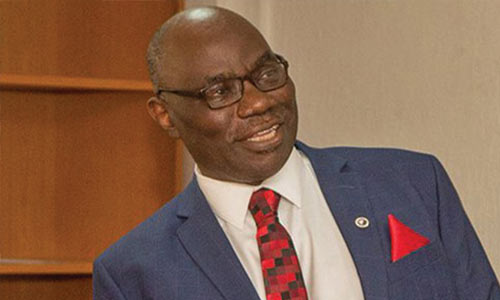Finally, FG axes Ikeja Electric, Abuja, six other DisCos, as NERC set to withdraw their licences

Barely five months after Mr. Babatunde Raji Fashola (SAN) as Minister of Power, Works and Housing declared that licenses of nonperforming electricity distribution companies can be revoked, feelers from Abuja indicate that the Federal Government may cancel the licences of eight such DisCos as they breached some provisions of the Electric Power Sector Reform Act in July 2019.
According to the Nigerian Electricity Regulatory Commission, the eight DisCos include Abuja, Benin, Enugu and Ikeja Electric. Others are Kaduna, Kano, Port Harcourt and Yola Discos.

In a notice posted on its website on Tuesday evening, the power sector regulator said it intended to cancel licences issued to the eight Discos pursuant to Section 74 of the EPSR Act.
In the eight-page notice to the Discos, which was signed by one of the NERC’s commissioner, Dafe Akpeneye, the commission stated that the power firms had 60 days to explain why their licences should not be cancelled.
It said, “Take notice that pursuant to section 74 of the EPSR Act and the terms and conditions of electricity distribution licences issued to the distribution licensees by Nigerian Electricity Regulatory Commission has reasonable cause to believe that the Discos listed below have breached the provisions of EPSRA, terms and conditions of their respective distribution licences and the 2016 – 2018 Minor Review of Multi Year Tariff Order and Minimum Remittance Order for the Year 2019.”
Outlining the Discos, it said, “Abuja Electricity Distribution Company Plc; Benin Electricity Distribution Company Plc; Enugu Electricity Distribution Company Plc; Ikeja Electric Plc; Kaduna Electricity Distribution Company Plc; Kano Electricity Distribution Company Plc; Port Harcourt Electricity Distribution Company Plc; and Yola Electricity Distribution Company Plc.”
The commission said it considered the actions of the aforementioned Discos as “manifest and flagrant breaches” of EPSRA, terms and conditions of their respective distribution licences and the order.
It stated that the commission “therefore requires each of them (Discos) to show cause in writing within 60 days from the date of receipt of this notice as to why their licences should not be cancelled in accordance with section 74 of EPSRA.”
Further analysis of the notice showed that the eight Discos failed to meet the expected remittance threshold for the month of July 2019 billing cycle to the Nigerian Bulk Electricity Trading company.
Three other the Discos remitted 10 per cent during the period, while the highest remittance was 40 per cent, as they all fell short of the expected minimum remittance stipulated by NERC.
Speaking on Thursday May 9 at the 2019 Punuka annual lecture in Abuja, Fashola before handing over as former Minister of Power, Works and Housing combined had maintained that the regulatory body, not the minister, could either cancel or amend the licences of the DisCos upon consumers complaints.
Fashola, who is now Minister of Works and Housing, said the powers of NERC is applicable to all licensed authorities, including the transmission companies, generation companies, distribution companies and others under the act.
He said that state governments are also empowered under the constitution to generate, transmit and distribute electricity in areas not covered by the national grid.
“The power not to renew or to revoke operational licence of any of the authority is in sections 73 and 74 of the Act and so, there is no monopoly granted any agency unless it is endorsed on their licence,” Fashola said.
“So, there is nothing that stops the regulator from licensing another person to do the same activities within their territory as DisCo.
“If you are not serving an area well, you will get a notice that consumers in the area are not happy and you will be given a time limit to deal with the problem.
“Upon failure to address the problem, the regulator can amend your license, take the area out of your territory and license it to another person or cancel the entire license.”
The Nigerian electricity distribution sub-sector has been considered the weakest link in the value chain since privatisation of the power sector in 2013, as it has failed to live up to the performance expectations.








